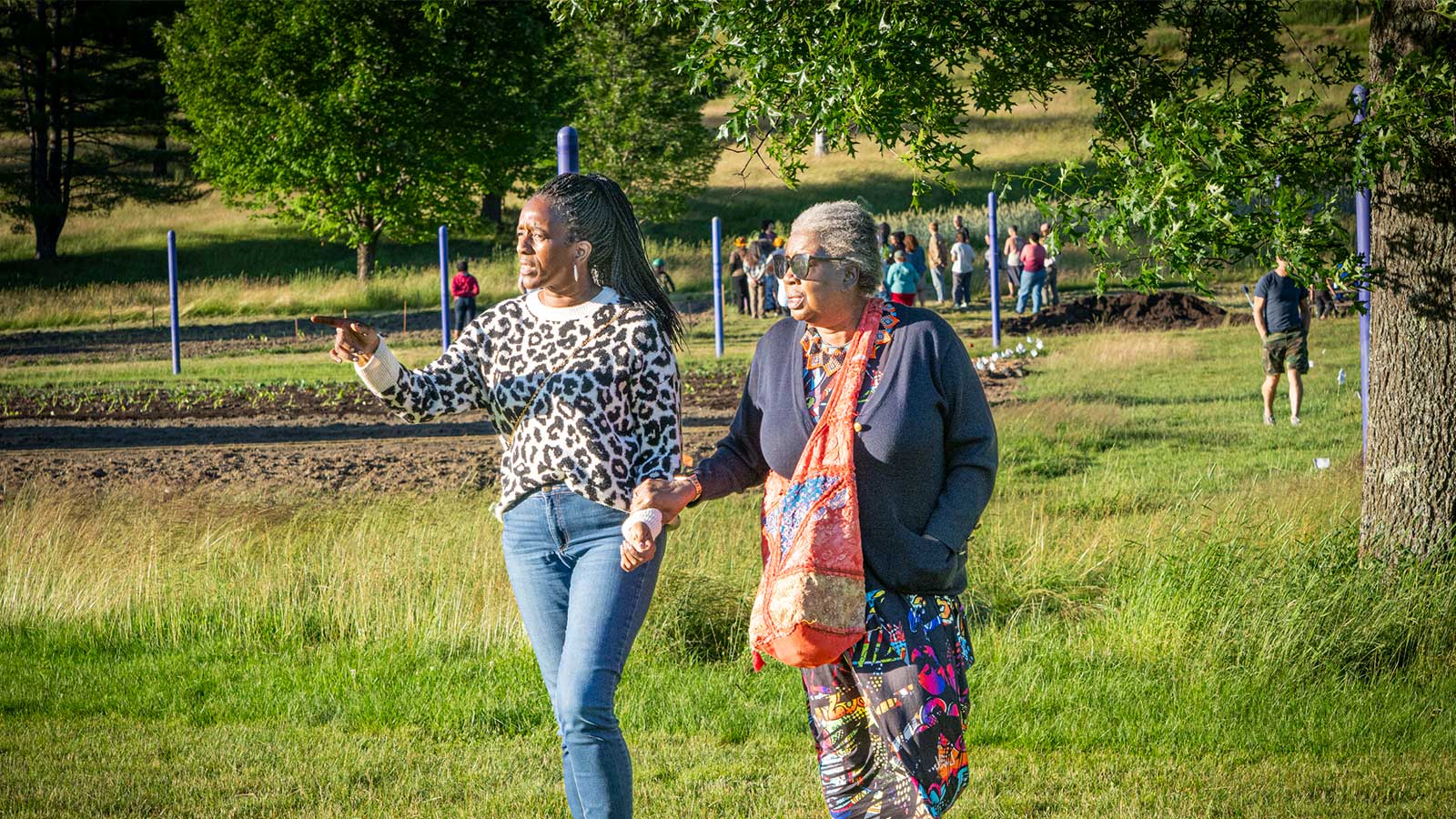By Sister Sankofa, The Montpelier Bridge —
As we lean into the celebrations of freedom during this time of year, with Juneteenth and the 4th of July, I wanted to send out a call to those of you who are remembering the words, “Let Freedom Ring.” It’s important for all of us to continue to hold our communities with care, as we also commemorate the flood of July 2023. This year has been challenging for all of us and many are still holding and mending the scars that this event has left behind.
As a reparations activist, equity strategist, and community advocate for the people, I felt a call to learn more and research about Harriet Tubman’s journey as she safely brought over 70 slaves to “safe spaces” into freedom. This is one of the reasons why BIPOC affinity spaces are so critical and crucial today. I am so thankful for the Paij Wadley-Bailey Community Garden, sponsored by the F.E.A.S.T Farm, Just Basics Inc, Community Resilience Organizations, The VT Releaf Collective, and the Unitarian Church’s “My Grandmother’s Hands” book group! This affinity garden space is an act of community care through an act of reparations.
What is the meaning of reparations? Reparations begin with YOU! Reparations means “to make whole.” We all have ancestral trauma and wounds that need to be healed. Healing ourselves will allow us to do the deeper work of healing our communities, together. We cannot heal these divisions, unless we each acknowledge our own wounds and the oppressive systems that have been used to divide and enslave ALL of us (mind, body, and spirit).
As I reflect on freedom, what comes to mind for me is the freedom to say “No” and taking time for more self care (affirmations, silent retreats, more time with animals and nature), shutting out all of the noise and retreating into the quiet spaces and places. Another form of freedom is focusing on the deep healing work of connecting to nature, hence the inception of the community garden. The act of this garden is helping the global majority who lack safe spaces and places become close to the earth, which can heal all of us. Also, acts of courage to help others (the flood, and community response and resilience to natural disasters).
I learned that like me and others in the African American tradition, the power of the natural world is so important to wind down our nervous systems. Many times I’ve noticed my own triggers to loud noises, and taking the time to be in silence, singing softly or humming, reading a book, taking a stroll with the backdrop of the sounds of nature, really soothes the soul. When I think about Harriet Tubman’s call to action and her constant journeys to rescue slaves out of the dangerous places and spaces, I would like to think that she tapped into the power of nature to give her courage. She used the power of the moon to guide her and her fellow captives to guide them through the night. She used the water to throw off the scent of the tracking dogs. She used the power of the trees and swamps as a safety of camouflage. She used the known roots for food to get them all the way to the last stop on the “Underground Railroad.” What was driving her body to continue to put herself in danger so many times? I would like to think it was love, built by the power of nature and the good nature of people (on the underground “railroad”). She tapped into the power of the underground “community” activists. How did she cultivate and build a community of white allied strangers for her “Underground Railroad”? Through faith, spirit guidance, the power of reparations she made first to herself, and through the power of resilience she was able.
Sister Sankofa (she/her) — formerly known as Shanda Williams — is a small business visionary, creator, and owner of SD Communications and Marketing Consulting Group LLC. She is one of the assistant directors of CROs (Community Resilience Organizations). She offers social justice programs, small business consulting, networking events, event facilitation and creation, and talent promotion to conscious-minded businesses, organizations, and artists in Vermont and beyond.
Source: The Montpelier Bridge
Featured image: Attendees walking at the June 27 opening ceremony of the Paij Wadley-Bailey Community Garden, a BIPOC affinity space at Montpelier’s Country Club Road property. Photo by Terry Allen.


